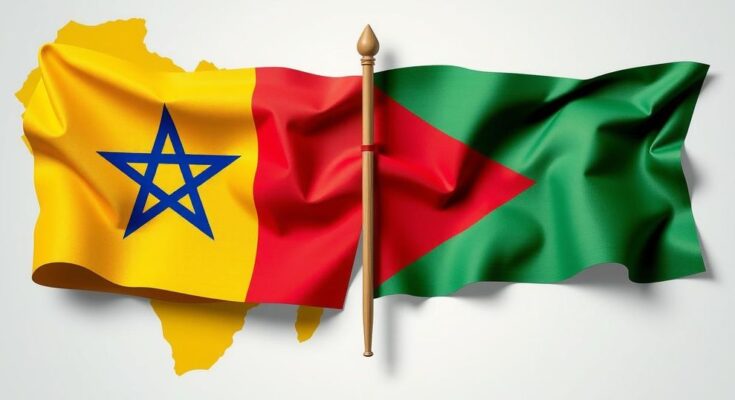The Ankara Declaration, announced on December 11, 2024, marks a crucial step towards peace between Somalia and Ethiopia, facilitated by Turkey. Despite the optimistic framework for cooperation, concerns linger regarding territorial disputes and Ethiopia’s naval ambitions. Upcoming negotiations aim to solidify beneficial arrangements but reflect the need for cautious deliberation and trust-building in a historically conflicted region.
On December 11, 2024, a significant agreement known as the Ankara Declaration was announced by Turkey’s President Recep Tayyip Erdogan, facilitating a rapprochement between the Federal Republic of Somalia and the Federal Republic of Ethiopia. This accord marks a pivotal moment in the Horn of Africa, where the leaders of both nations, President Hassan Sheikh Mahmoud of Somalia and Prime Minister Abiy Ahmed Ali of Ethiopia, have agreed to seek an end to potential hostilities. The declaration reflects an intention for both countries to foster peace, yet skepticism persists regarding its implications for territorial disputes.
The agreement has incited debate, particularly among Somali citizens who perceive Ethiopia as the aggressor, having historically claimed territories in Somalia, such as the regions in the Oromia State. This perspective likens the agreement to conceding one’s own possessions, suggesting a perceived imbalance that raises concerns over sovereignty. Critics argue that Türkiye, posing as a strategic partner, should have urged Ethiopia to adhere to established international law instead of facilitating a contentious agreement.
Meanwhile, opposition factions in Ethiopia deem Prime Minister Abiy’s actions as a deviation from the national ambition of securing access to the sea through a controversial memorandum of understanding with Somalia. Stakeholders indicate that both leaders may have capitulated to pressures from President Erdogan to formalize the agreement, seemingly prioritizing geopolitical advantage over national interests.
The upcoming negotiations, scheduled to commence in February 2025, present an ambitious timeline for establishing long-term cooperative ties. Experts argue that this time frame is overly optimistic, emphasizing the necessity for specialized negotiating teams equipped to address the complexities of corridor management and commercial access for landlocked nations. Past grievances necessitate a gradual approach to ensure sustainable relationships that transcend the agendas of the current leadership.
The Ankara Declaration signifies Ethiopia’s engagement to secure maritime access through Somalia, which could yield mutual benefits post-negotiation. However, the establishment of a naval force by Ethiopia has raised suspicions within Somalia, as apprehensions regarding foreign military presence in domestic waters persist. There is a strong call for Somalia to retain oversight over its territorial waters while proposing alternatives, such as the purchase of naval assets from Ethiopia, thus fostering cooperative security arrangements.
The declaration suggests a potential reprieve from escalating tensions within the region while paving the way for economic integration and collaboration. By cultivating peaceful relations, both Somalia and Ethiopia could set a precedent that encourages engagement with neighboring nations, ultimately benefiting the approximately 164 million people residing across these borders and offering prospects for greater stability and prosperity in the Horn of Africa.
The Horn of Africa, comprising mostly Somalia and Ethiopia, has been historically fraught with territorial disputes and conflicting interests. Tensions have often escalated into violence, with each nation harboring grievances related to sovereignty and border integrity. The Ankara Declaration emerges as an attempt by Türkiye to mediate these complex dynamics, aiming to stabilize a volatile region through diplomatic engagement and economic cooperation. This agreement reflects not only the aspirations of the two nations but also Türkiye’s strategic interests in the Horn of Africa.
The Ankara Declaration represents a significant development in the ongoing interactions between Somalia and Ethiopia, seeking to transition from hostility towards collaboration. While the potential for economic and regional integration exists, both countries must address underlying territorial disputes and build trust to ensure long-term stability. The success of the forthcoming negotiations will hinge on the creation of frameworks that prioritize mutual security, infrastructure development, and the handling of maritime affairs in alignment with each country’s sovereignty.
Original Source: www.eurasiareview.com




